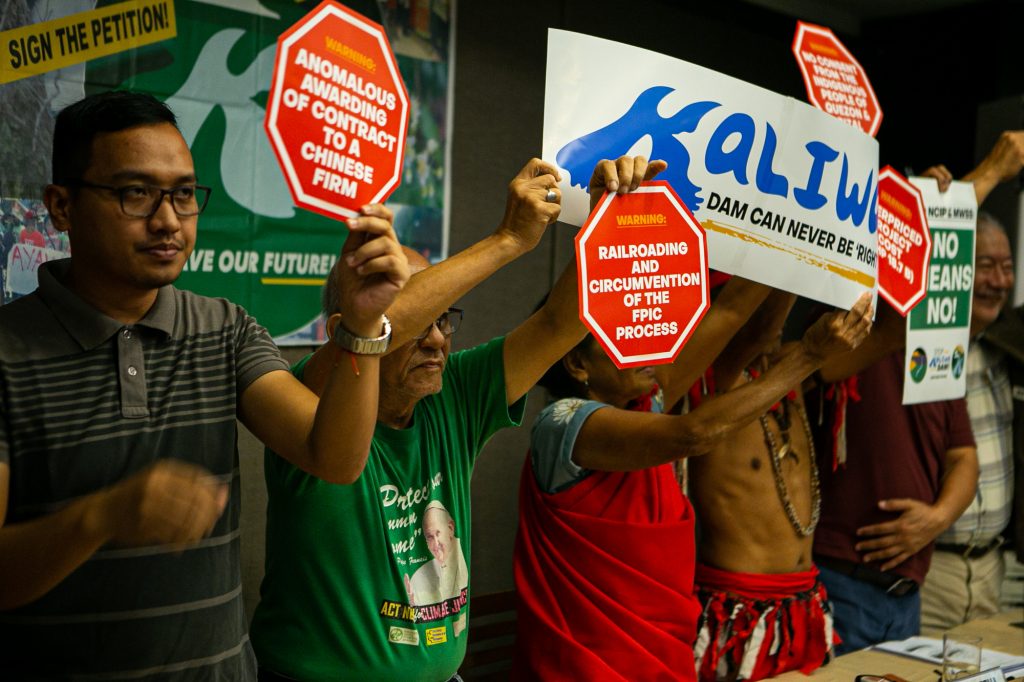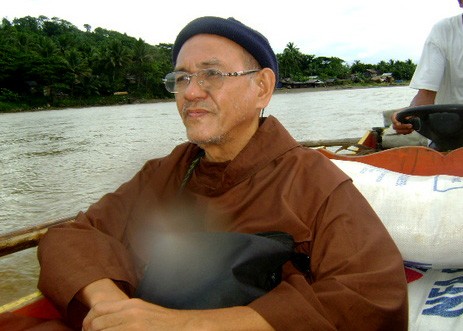On World Rivers Day on Sunday, a Filipino Catholic priest appealed to the government to put the welfare of the people, especially tribal people, before business interests.
Franciscan priest Pete Montallana, head of the Save Sierra Madre Network Alliance, called on President Rodrigo Duterte to review policies on so-called development projects.
“Our rivers and forests are in the brink of total destruction because of these development projects funded by foreign countries like China,” said the priest.
He decried how the president “seems hesitant” to stand for the welfare of affected tribal communities and the environment “because he already entered into an agreement” with the Chinese.
Father Montallana “it is not too late” for Duterte to realize that “his covenant with his own country and the Filipino people have a greater weight than his accord with China.”
He said the president, “if he reaches the point of ecological conversion,” has the power to immediately stop the projects that are destructive to human life.
The priest cited the construction of a US$248-million China-funded mega dam in the northern Philippines as an example of misplaced government priorities.
The project is an integrated dam system involving the construction of a dam on the Kaliwa River in Rizal province, and a smaller dam downstream in Quezon province.
“This mega dam project will displace at least 15,000 indigenous people and submerge many farming communities,” said Father Montallana.

The mega dam project is one of 75 flagship infrastructure projects under the “Build, Build, Build” program of the government.
In 2018, at least 51 Catholic bishops signed a pastoral letter issued by Bishop Bernardino Cortez of Infanta opposing the dam project.
The letter called on the government to look for alternative water sources that would address the water supply problem affecting the capital Manila.
Early this month, Bishop Cortez renewed the Church’s opposition to the mega dam project, saying that it poses risks to lowland agriculture and fishing communities.
“You will understand by geography that our very survival depends on the care of our mountains, forests, rivers, protection of mangroves and seashores,” said the prelate.
Pro-environment groups around the world observe World Rivers Day on September 28 to create awareness for the protection of rivers and water resources.
In a statement, the International Indigenous Peoples Movement for Self-Determination and Liberation called on governments and nations across the globe “to act” in defense of rivers and watersheds.
The group said the world’s rivers “continuously face wide arrays of threats aggravated by the climate crisis.”
“Mega dams, big hydropower projects, destructive energy, and oil extraction pipelines are aggressively built on major rivers and tributaries choking its natural flow,” the statement read.

More than 3,500 hydropower dams are being planned or built around the world. This could double by 2030.
Beverly Longid, coordinator of the organization, said these development projects “do irreversible damage” to the environment and people’s ways of life.
Longid claimed that governments and corporations have “implemented repressive policies and measures in the guise of national security laws, to silence resistance to these projects.”
She stressed the need to urgently stop all mega dams and destructive projects, which she said “fuel rights violations and environmental destruction.”
“Today’s crucial time of health and economic crisis needs everyone to move towards a collective assertion of systemic change that is pro-people and rights-based,” said Longid.









